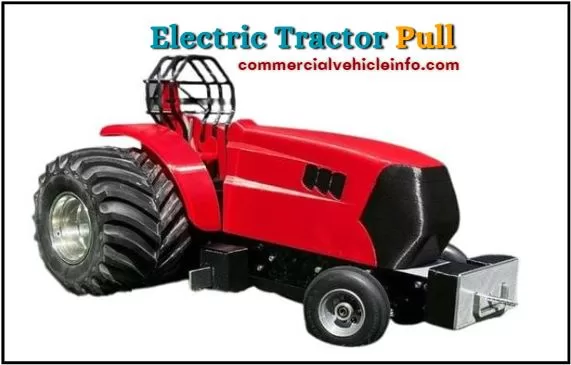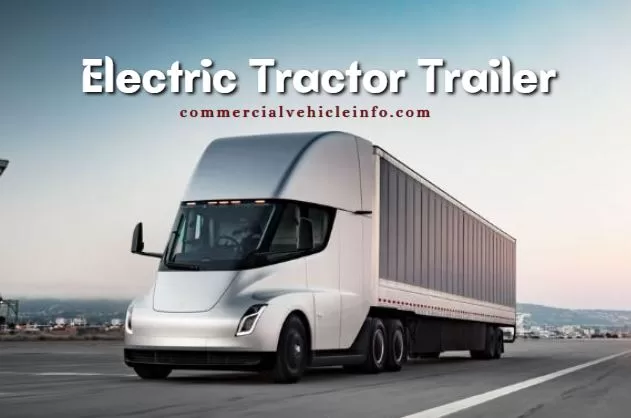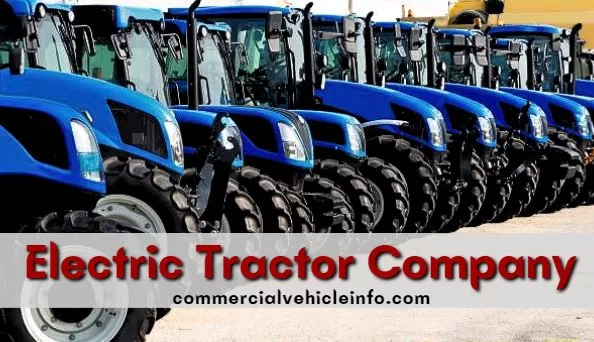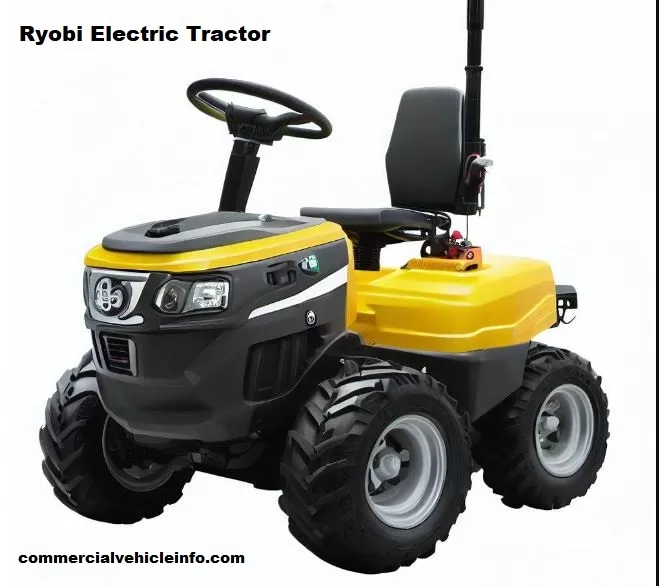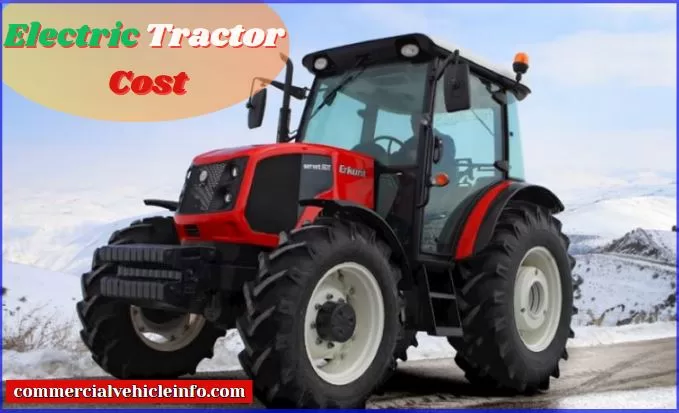Electric Tractor VS Diesel Tractor: Electric tractors are a new trend in the field of agriculture providing an environmentally sustainable and economical option for farmers. In comparison to diesel-powered tractors of the past Electric tractors are less polluting and quieter.
They are also more efficient that have all the energy working and maximum torque immediately available. Additionally, electric tractors require less maintenance as well as their battery is expected to last 10 years.
Although electric tractors might not be appropriate for all kinds of agriculture, they provide many advantages, such as cost reductions on fuel, lower emissions, and more quiet operation.
The advancement of electric tractors follows the progress of the electric vehicle industry that has made it a commodity manufacturing of lithium-ion batteries motors, as well as power components. Companies like Monarch Tractor, Solectrac, Fendt along with John Deere are among the top electric tractor manufacturers.
With more businesses investing in developing electric tractors We can expect to observe more and larger numbers of them in farms all over the world which will lead to greater productivity and sustainability of farming practices.

Electric Tractor VS Diesel Tractor
When considering agricultural machinery, the choice between an electric tractor and a diesel tractor carries significant implications for efficiency, environmental impact, and overall operations. Here’s a comparison between these two types of tractors:
1. Power Source:
- Electric Tractor: Relies on electricity stored in batteries to power an electric motor. Offers quiet operation and instant torque delivery.
- Diesel Tractor: Utilizes diesel fuel in an internal combustion engine to generate power. Produces more noise and vibration compared to electric tractors.
2. Emissions:
- Electric Tractor: Produces zero tailpipe emissions, making it environmentally friendly and reducing air pollution.
- Diesel Tractor: Emits exhaust gases like nitrogen oxides (NOx) and particulate matter, contributing to air pollution and climate change.
3. Operating Costs:
- Electric Tractor: Generally has lower operating costs due to lower maintenance requirements and cheaper electricity compared to diesel fuel.
- Diesel Tractor: Has higher fuel and maintenance costs, with ongoing expenses for diesel fuel, oil changes, and other engine-related maintenance.
4. Environmental Impact:
- Electric Tractor: Offers a smaller carbon footprint when powered by renewable energy sources, helping to mitigate climate change.
- Diesel Tractor: Contributes to greenhouse gas emissions and environmental degradation due to fuel combustion.
5. Fuel Availability:
- Electric Tractor: Requires access to charging infrastructure, which may not be as widespread in rural areas.
- Diesel Tractor: Diesel fuel is readily available in many locations, but prices can fluctuate based on market conditions.
6. Range and Efficiency:
- Electric Tractor: Typically has a limited range per charge, suitable for shorter tasks. Efficiency is high due to instant torque and a simplified drivetrain.
- Diesel Tractor: Offers a longer operational range on a single tank of fuel, making it suitable for long days of work in the field.
7. Performance:
- Electric Tractor: Provides smooth acceleration and quieter operation. May excel in precision tasks due to precise control.
- Diesel Tractor: Can handle heavy loads and demanding tasks due to the high torque output of diesel engines.
8. Upfront Cost:
- Electric Tractor: Generally has a higher upfront cost due to the expense of batteries and electric components.
- Diesel Tractor: Typically has a lower upfront cost, but long-term operating expenses can offset this advantage.
9. Maintenance:
- Electric Tractor: Requires less maintenance due to fewer moving parts, resulting in reduced downtime and lower maintenance costs.
- Diesel Tractor: Has more complex engine components, requiring regular servicing and potentially more downtime.
In summary, the choice between an electric tractor and a diesel tractor involves a trade-off between environmental benefits, operating costs, and practicality for specific farming tasks.
While electric tractors offer cleaner and more efficient operation, they may have limitations in terms of range and charging infrastructure.
Diesel tractors, while more established and versatile, contribute to pollution and come with higher fuel and maintenance expenses.
The decision ultimately depends on a farmer’s priorities, available resources, and the feasibility of adopting newer technology.
Will There Be Electric Tractors
Electric tractor designs are currently in development and being rolled out to the market. With the shift toward more eco-friendly and sustainable practices, the agriculture industry is looking for ways to cut down on emissions and reduce the carbon footprint.
Electric tractors can be a great solution to this. Here are a few reasons why electric tractors will be more popular:
- Environment-related Concerns The rising concern about climate change, as well as the necessity to cut greenhouse gas emissions has brought about a greater emphasis on implementing greener technology. Electric tractors, which have zero tailpipe emissions, are in line very well with these environmental objectives.
- The advancements of Battery Technology Technology for batteries have been evolving rapidly and have led to advancements in energy density, range, and charging speed. This makes electric tractors more efficient to run for longer periods of time as well as a wider array of applications.
- Government incentives and regulations Numerous governments around the globe offer incentives and regulations to encourage the adoption of electric vehicles, which include tractors. Tax breaks, subsidies, and emissions targets could encourage farmers to make the switch to electric tractors.
- Low Operating Costs Electric tractors generally are less expensive to operate because of lower fuel costs and less maintenance requirements. As technology advances, the price of electric tractors as well as their components will shrink which will make them more economically feasible.
- sustainability Initiatives Agriculture-related businesses and other organizations are more and more focused on sustainable practices in order to meet the demands of consumers for products that are environmentally friendly. Electric tractors could contribute to these initiatives to improve sustainability.
- The Public’s Awareness Growing awareness and demand for environmentally friendly products could lead producers to invest in the development of electric tractors. Customers’ preferences for products that have less environmental impact may affect the market.
- technological innovation Electric tractors benefit from constant technological advancements, such as the latest precision agriculture technology, automation, and the integration of digital platforms. These advancements enhance their value and draw farmers.
- Urban Agriculture and Niche Applications Electric tractors are ideal for urban and rural agriculture, where noise and emissions limits may apply. There are also applications in specialist crops as well as farms that are smaller in scale.
- Partnerships and Collaboration Collaboration between the manufacturers of agricultural equipment as well as battery companies and technology companies can speed up the development and use of electric tractors.
Although electric tractors will not substitute diesel-powered tractors for every scenario they are likely to get more traction and become an integral component of modern agriculture methods.
As technology advances and infrastructure develops electric tractors will be more affordable useful, practical, and suitable for a range of farming operations.
Conclusion
the contrast between diesel and electric tractors is a tangled subject that relies on a number of variables. Electric tractors have advantages like effectiveness, fewer emissions, and lower operating expenses, however, diesel tractors continue to perform well in the area of energy efficiency and endurance.
Although electric tractors may not be appropriate for all kinds of farming however, they are beginning to gain traction in the marketplace, and companies like Monarch Tractor, Solectrac, Fendt along with John Deere making investments in advancement.
A report from Hackaday states that electric tractors aren’t yet suited to massive, high-power tasks in farms since they are not large enough and are not able to provide the 24-hour operation that is required during busy times.
Electric tractors’ advancement follows the progress of the electric vehicle industry which has made it a commodity manufacturing of lithium-ion batteries, motors, and power components.
For more details visit the commercialvehicleinfo.com
Electric Tractor VS Diesel Tractor FAQ
Electric tractors are powered by electric batteries or electric power cables, while diesel tractors are powered by diesel or gas.
Yes, electric tractors are more efficient since all the energy goes into work, while diesel tractors waste energy as heat.
Yes, electric tractors produce zero emissions at the point of use, reducing air pollution and greenhouse gas emissions.
Yes, electric tractors are generally quieter than diesel tractors, contributing to a more peaceful farming environment.
Yes, electric tractors are designed to perform various farming tasks, including plowing, harvesting, and mowing, just like diesel tractors.
Yes, electric tractors have fewer moving parts and require less maintenance compared to diesel tractors.
Yes, electric tractors can be charged via renewable energy sources such as solar or wind power, resulting in even lower operating costs.
Electric tractors can be suitable for various farming operations, but their size and 24/7 operation capabilities may limit their use in large-scale, high-power tasks.
The lifespan of an electric tractor battery can vary, but some models are projected to last up to 10 years, pending operating cycles and depth of discharge.
The upfront cost of electric tractors can be much higher than diesel tractors, although they can be cheaper in the long run due to lower fuel and maintenance costs.

